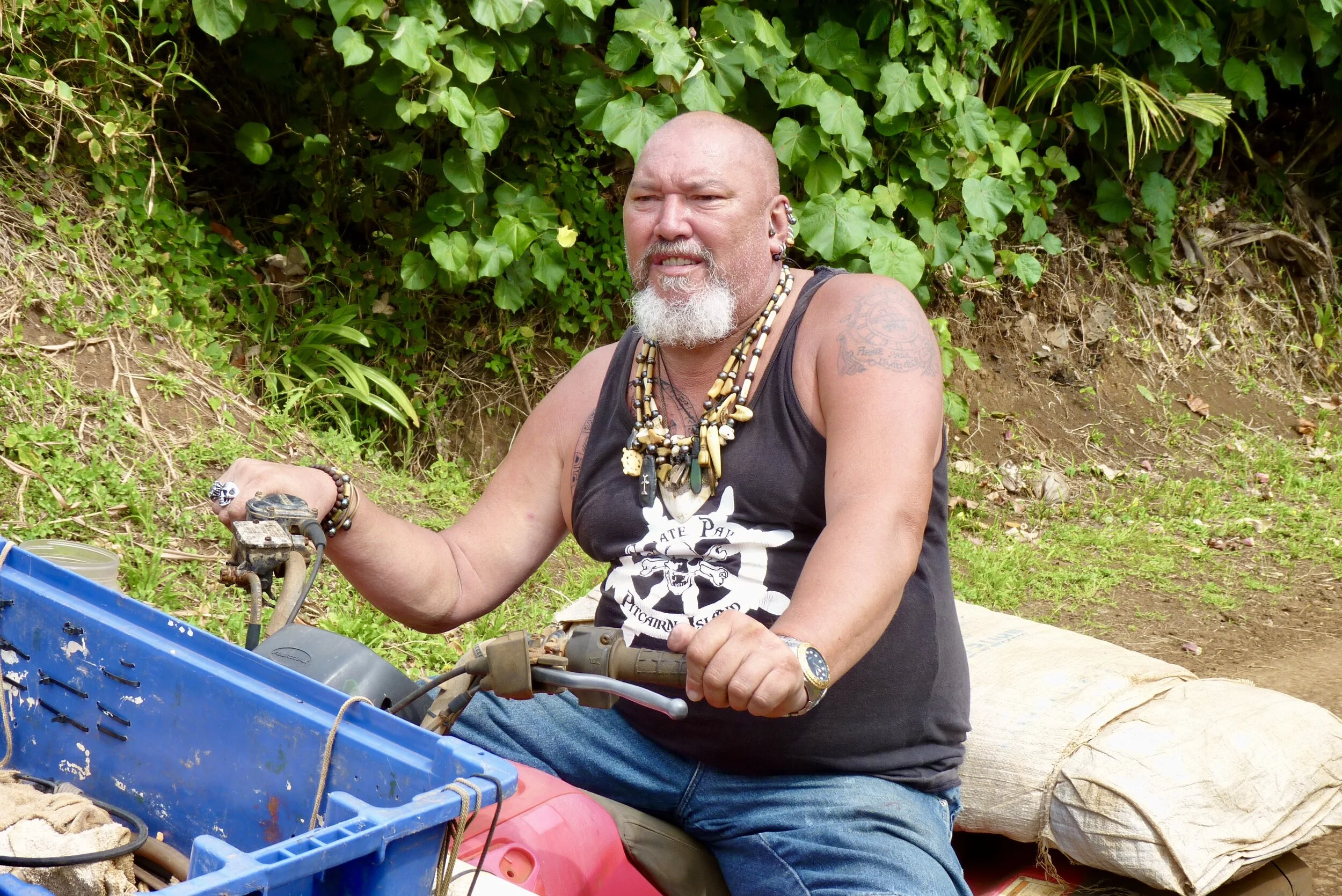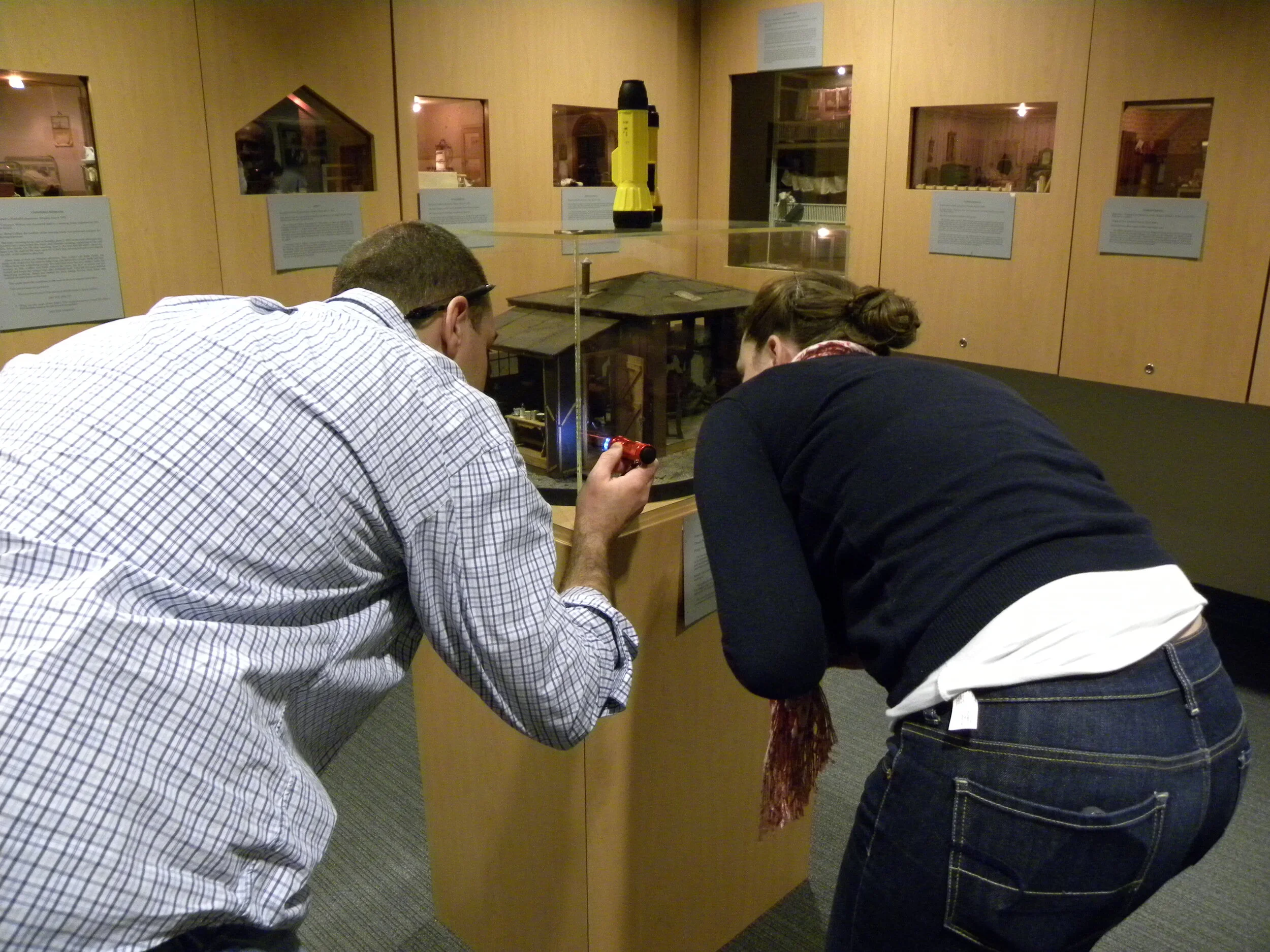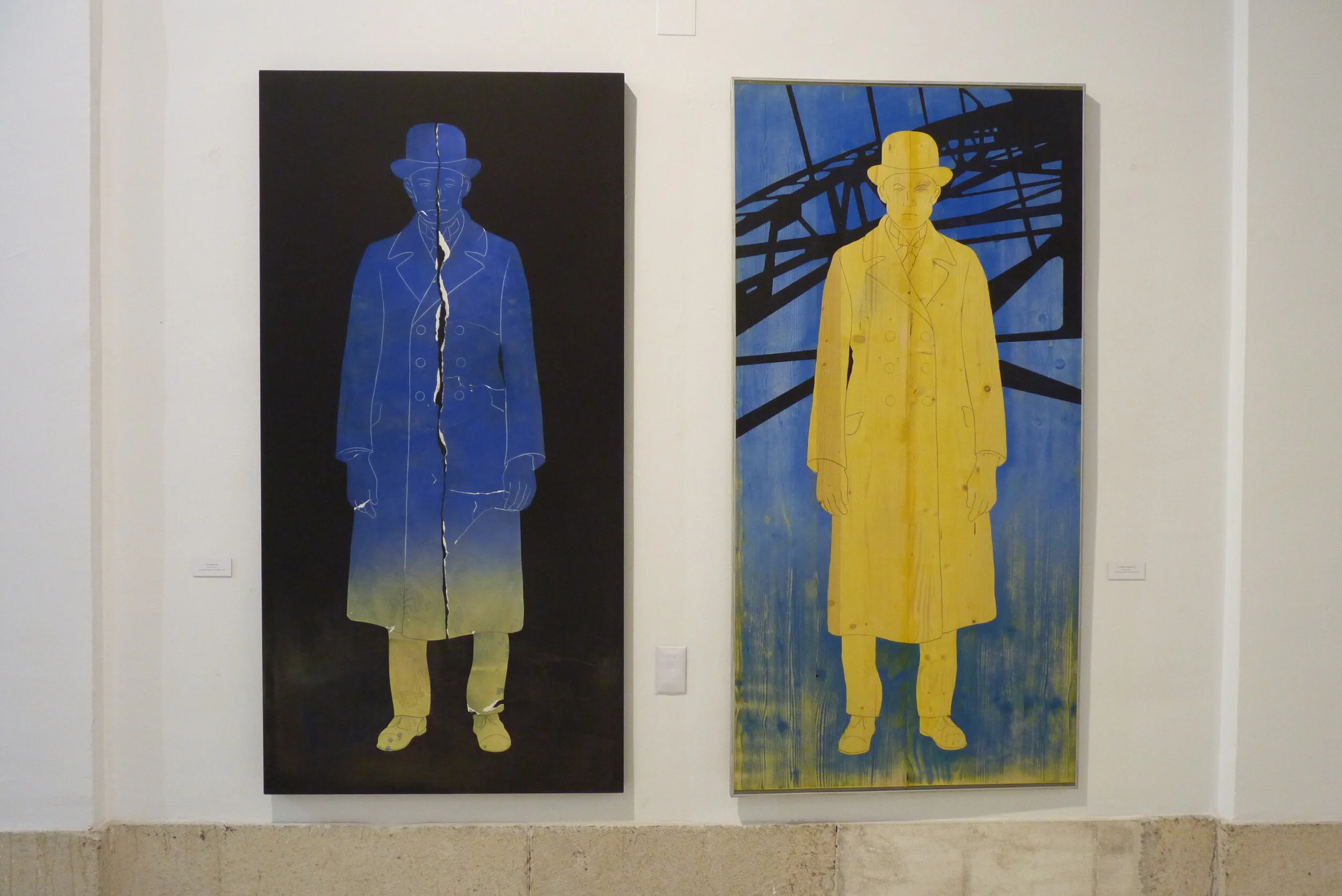The cops treating their PTSD with psychedelics
They were gathered in the Peruvian jungle, in a ceremonial wooden structure known as a maloca, and their immediate fate was in the hands of tribal shamans dressed in brightly patterned robes. One by one they were called up to drink a shot of foul-tasting dark sludge. ‘At that point,’ says Paul Haylock, ‘the nerves really did start to kick in. I’m thinking, is this the right thing to be doing?’
Haylock and his seven companions had travelled to Peru to take ayahuasca, a psychedelic medicine made from Amazonian plants that is used in indigenous healing ceremonies. It’s a path commonly trodden by young Westerners seeking spiritual enlightenment in shamanistic practices and mind-altering drugs. But Paul Haylock is a 41-year-old police dog handler from Essex.
He attended the Westminster terror attack of 2017 in which four members of the public and a police officer were killed and many people were injured. Since then, on his own assessment, he has has been to some ‘dark places’ in his head. His journey to Peru last November was a last-ditch attempt to shine a light into those dark places and find some relief from the anxiety and suicidal thoughts that had been plaguing him.
In a cafe near his home PC Haylock sips herbal tea as he paints a vivid picture of what happened after he drank the ayahuasca. ‘It was like watching my brain being rewired – as if the weight of the world was just lifted off my shoulders,’ he says.
Haylock is not an outlier in seeking the help of psychedelic medicine for work-related trauma – military veterans have been doing so for a number of years. But only now is this therapy being made available in the UK to police officers and other ‘first responders’ whose day-to-day responsibilities place them in situations that can have a debilitating effect on their mental health.
With British policing in a state of crisis the timing is not a coincidence. In addition to accusations of systemic racism and misogyny there have been a string of stomach-churning cases involving serving officers – most notoriously, the kidnap, rape and murder of Sarah Everard by Metropolitan Police Officer Wayne Couzens in 2021 – that have severely undermined public trust in those responsible for maintaining law and order.
Neil Woods is a former undercover drugs officer and author of Good Cop, Bad War who now campaigns for drug law reform. He sees a connection between the broken behaviour of police and what he describes as a ‘parallel mental health crisis’ within the force. ‘I'm not trying to make any excuses for poor behaviour – we should deal with that in the correct way,’ he says. ‘However, the police are constantly being criticised without people understanding the context of the trauma they might have suffered.’
Woods is a board member of the Law Enforcement Action Partnership (LEAP), comprising senior figures in the police, intelligence services and the judiciary, which advocates evidence-based policies around drugs and mental health. He cites a landmark Cambridge University study from 2018 suggesting that 20 per cent of British police have some form of PTSD (the mental condition in which traumatic events from the past trigger distressing memories and states of ‘hyper-vigilance’) – though most are unaware they have it. The Police Federation’s latest Pay & Morale Survey reflects widespread dissatisfaction with the job and officers are leaving in droves – almost 9,200, a record figure, in England Wales in the year ended March 2023, from a workforce of under 150,000.
At the other end of the country from Paul Haylock, 36-year-old Steve (not his real name) left the police in 2018. Talking frankly on a FaceTime call, he says he was sexually abused as a child and joined ‘because I wanted to help vulnerable kids like me’. But the reality of the job became overwhelming.
‘You see a hanging body for the first time, you see a tiny little baby who's been murdered. You’re dealing with rape victims. No one sits you down at the end of the day, like you see on telly where the cops go and have a debrief if they've seen something horrific? It doesn't happen. You go back to work the next day and you're dealing with something else horrific. And it piles on. Layer after layer of horrific things. It builds up until eventually you break.’
The NPCC (National Police Chiefs’ Council), representing chief constables and commissioners across the country, acknowledged in a statement that ‘Exposure to traumatic events is a difficult reality for many frontline workers’ and said that ‘early intervention support … is recognised by all forces as essential’. It also pointed to the work of the National Police Wellbeing Service, launched in 2019, which produces an annual ‘wellbeing survey’ and funds 6,000 risk assessments for high-risk roles.
But the inadequacy of the available in-house support is a common theme among officers I have spoken to. For Steve it was ‘token gestures, too little too late,’ while Neil Woods goes further. ’If you start betraying any kind of mental health problem you are immediately treated with hostility – I have not had a good news story from anybody,’ he says.
Diagnosed with Complex-PTSD (in which exposure to repeated trauma causes feelings of worthlessness and social disconnection) Steve was on medication for 10 years. ‘Every time there was a crisis, the psychiatrist would increase the dose or add something else into the mix,’ he tells me. ‘So by the end – about two years ago now – I was on the highest dose of antidepressants, and a mood stabiliser and an antipsychotic. It didn't make me feel any better. It just numbed me.’ Suicide became his nuclear option. ‘That's my go-to place. I know that I've got the power to take my own life when things get really bad and that gives me – I know it sounds a little bit strange – a sense of control.’
Paul Haylock, who has been a police officer for 22 years, describes a similar trajectory of worsening mental health. Like Steve he buried the bad memories rather than confronting them – the ‘mentality of “just suck it up, get on with it”’ – but the Westminster terror attack of March 2017 was a ‘tipping point’.
After mowing down pedestrians on Westminster Bridge the perpetrator, Khalid Masood, crashed his car into railings near the Houses of Parliament. He then ran into New Palace Yard and stabbed PC Keith Palmer before being shot dead by a close protection officer. When Haylock and a dog handler colleague arrived on the scene ‘we were told there were rucksacks and phones within the car that they believed could have been a potential IED [improvised explosive device]’.
With the body of the stabbed police officer still lying on the ground they checked the car, which turned out to be clear. They then searched Westminster Bridge, which he describes as ‘a scene of carnage’, strewn with bodies covered in sheets. One was under a bus. ‘Once we'd searched the bridge an explosives officer confirmed that the PC had died,’ says Haylock. ‘It was then that everything started flooding in – thinking about what we’d just dealt with, thinking about my family, the risk that you just put yourself at: “That could have been me”.’
Two years later Paul Haylock hit ‘rock bottom’ after he and his wife lost their child when she was six months’ pregnant. Like Steve, he considered suicide ‘because I just didn't think things were ever going to get any better for me’. But, also like Steve, he decided to roll the dice one last time by searching the internet for ‘other avenues’.
This is what brought them both to the door of the charity Heroic Hearts Project UK, a sister organisation of its American namesake, which sends troubled military veterans and emergency services workers on ‘progressive therapy retreats’ – mainly ayahuasca ceremonies in Peru. The UK version of Heroic Hearts was set up during the pandemic lockdown by ex-soldier Keith Abraham, who had already made the journey to Peru off his own bat.
Abraham, whom I meet at his neat modern house on the Kent coast, served in Afghanistan with the Second Battalion, Parachute Regiment (the elite ‘2 Para’). ‘I signed up to kill bad guys – I got that,’ he says. ‘Lesson number one from Afghan[istan]: be careful what you wish for.’
He describes his younger self as angry, violent and bitter – which is hard to square with the calm and friendly man, now 44, sitting across from me. Having suffered PTSD following his tour in Afghanistan he can pinpoint the moment when he knew how much trouble he was in. He was sitting at a bar with his then girlfriend, not remotely drunk, ‘and all of a sudden my eyes were crying. I word it that way because I wasn't emotionally crying. I was just leaking from my eyes.’
After antidepressants and counselling failed to turn the tide a couple of American friends suggested going on an ayahuasca retreat in Peru. In desperation he booked a flight to South America and headed off into the unknown. ‘It was just remarkable,’ he says. ‘I walked out of that jungle and I absolutely knew that I'd been healed of all of my combat trauma.’ He also knew that this therapy could be of immense benefit to fellow veterans who were suffering as he had.
He intended Heroic Hearts solely as a service for military veterans but after talking to a police officer who attended the Grenfell Tower fire of 2017, in which 72 people died, Abraham has widened the field to include first responders. ‘Her experience reminded me that there are other people that are needing this access,’ he says, pointing out that there is no ‘hierarchy’ of trauma.
The charity is supported by a team of scientists and academics specialising in psychedelic medicine. The Research Director is 32-year-old Dr Grace Blest-Hopley, an army reservist who has a PhD in neuroscience from King’s College, London. We meet at her private members’ club, the Cavalry & Guards Club in Piccadilly, where we sit beneath a portrait of Field Marshal Douglas Haig, commander of British troops in the First World War – the conflict in which PTSD, then called shell shock, was first recognised as a medical condition.
She emphasises that the ayahuasca treatment is ‘very hard work’. There is a strict vetting procedure, participants are assigned a ‘coach’ to support them throughout and the preparation and aftercare are extensive. Crucially, after returning from the jungle they become Heroic Hearts ‘alumni’, supporting each other ‘like a family’ and keeping the experience alive. ‘One thing I really try to get across is that this is a life-changing process,’ she says. ‘It’s not, “Let’s go to the jungle and have a party”.’
Paul Haylock and Steve joined six military veterans on the second retreat organised by Heroic Hearts, last November. They each paid their own air fares while the £3,000 cost of the retreat itself was met by the charity. Steve says he was terrified beforehand ‘but at that point in my life I had absolutely nothing left to lose.’
Sitting in the maloca beneath the rainforest canopy the group drank ayahuasca on three occasions over consecutive days, as part of a ceremony in which shamans, or ‘maestros’, chanted and played music The brew itself is made by combining the leaves of a plant and a vine that grow in the Amazon. Steve confirms that it tasted foul but, after several hours in an altered mental state, ‘I came out feeling that I'd been held all night, that I'd been loved all night – like I'd been given a big dose of love.’
For Haylock it was like ‘a video game experience in which different scenarios [eg to do with childhood, or his tendency to become angry and judgmental] would keep coming up in my mind’. He believes the medicine was encouraging him to view them in a new way – hence the sense that his brain was being rewired. Dr Blest-Hopley describes these experiences as ‘like therapy sessions that people are having with themselves.’
It was not all plain sailing. People routinely sob and retch, and Haylock says his second session was ‘one of the worst experiences of my life’ in which he felt he was at war with the ayahuasca. In retrospect he feels that even this was instructive as it taught him how to stop resisting and let his emotions out.
But at the time it knocked him back and while it didn’t undo the positive effects of the first session it made him think twice about taking ayahuasca a third time. ‘Then I thought, on the flip side, how can I go home not doing that last night, thinking what could have been?’ The third session turned out to be ‘pleasure from start to finish – I sat there in awe, not wanting it to end.’
Dr Blest-Hopley, who has been on one ayahuasca retreat in Peru herself, has a scientific explanation for what is going on in the brains of PTSD sufferers under its influence. She likens a traumatic memory to a ‘broken file’ that gets more and more deeply grooved into the brain. Psychedelics break this down ‘in such a way that you can properly process it and therefore file it away in a more suitable manner’.
This in turn allows other parts of the brain that usually remain separate to start ‘talking’ to each other, ‘and that's where you get a lot of the perceptual effects of psychedelics’. There is also a boost to what she calls ‘Miracle-Gro’ for the brain – factors that give it enhanced ability to understand and learn. The ‘afterglow’ of this effect lasts two to three weeks, a ‘magic window’ in which people are able to absorb and ‘integrate’ the insights they have gained.
Six months on from their Peruvian experience Paul Haylock and Steve are both still feeling the benefits. ‘I'm so much better at coping with things that get a bit tough, a bit stressful,’ says Haylock, while Steve no longer goes into ‘fight or flight’ mode at the merest unexpected noise ‘and that’s been amazing because it's exhausting being in that state all the time.’ Ayahuasca, they agree, has turned their lives around.
Heroic Hearts’ third Peruvian retreat has just taken place and Keith Abraham says there are currently 75 people on the waiting list for future retreats, of which 11 are paramedics, firefighters or police officers and the rest ex-soldiers. According to former undercover drugs officer Neil Woods there are already plenty of police with mental trauma in the UK exploring the use of psychedelics.
But as these drugs are currently listed under ‘schedule 1’ of the Misuse of Drugs Regulations – regarded as having no accepted medical use – and therefore illegal, the activity either has to take place abroad (for example on psilocybin – ‘magic mushrooms’ – retreats in the Netherlands) or on an underground basis. This means that some police officers are breaking the law they are responsible for upholding in order to give themselves a chance of feeling better.
The irony is not lost on Ben Broughton, a former police sergeant in the north-west of England who studied plant medicine for three-and-a-half years under a shaman in the UK before setting up on his own. He now offers one-to-one healing ceremonies at secret venues using psilocybin.
‘I've no doubt that if I was to be in front of a magistrate or a judge one day, they may well make an example of me,’ he says on a Zoom call, ‘but I've decided that it's time to put my face to my cause.’ So far he has helped people from all walks of life – including two police officers, one of whom summed up his decision to break the law in this way: ‘I’d rather be illegally well than legally dead.’
Drugs law reform is a hot potato that governments of all complexions have been reluctant to grasp. Yet there is growing scientific evidence of the efficacy and safety of the therapeutic use of psychedelics. At Imperial College, London the Centre for Psychedelic Research has been conducting pioneering work for more than a decade – to which Heroic Hearts is now contributing with its own data. A substantial number of the major UK universities have psychedelic research departments and internationally there are scores of biotech companies going through the regulatory processes required to license psychedelics as medicines.
The law is beginning to reflect the science. Australia recently became the first country in the world to legalise psychedelics when it gave the go-ahead for approved psychiatrists to prescribe MDMA (‘ecstasy’) and psilocybin, while the FDA (Food and Drug Administration) in the US is likely to approve the use of MDMA for the treatment of PTSD in the next few months.
‘This is reality. This is coming. The only question is how fast,’ says Neil Woods of LEAP.
There is a thread of optimism bordering on evangelism common to all the users and proponents of psychedelics that I spoke to for this article. ‘I have seen it with my own eyes and I’ve seen it in the data – that what we're doing is unbelievably beneficial for standardised measures of post-traumatic stress, depression and anxiety,’ says Blest-Hopley. ‘People are turning their lives around and becoming incredible human beings who are really contributing to their society.’
Some senior figures in law enforcement and the military are said to agree privately though so far few have done so publicly. One who has is General Sir Nick Carter, the former Chief of the Defence Staff, who supports trials for the therapeutic use of MDMA. Neither the NPCC nor Police Care UK, the charity for serving and former officers who have suffered work-related physical or psychological harm, wished to comment on officers’ use of psychedelic medicines.
Neil Woods says the evidence is in and police officers should be at the front of the queue for these treatments. ‘We want freely available, legal, regulated, psychedelic therapy for police officers,’ he says. ‘We want it for everybody – but we want police officers to be a priority because of the policing crisis.’
In his local cafe in Essex PC Paul Haylock says he is speaking out now because ‘if this [interview] helps just one person to look at doing it themselves, then that’s great because I believe it can really, really help.’ The fear and stigma around psychedelics needs to go, he says. ‘We should be going full steam ahead with this.’
Published in the Telegraph Magazine on May 25, 2024









